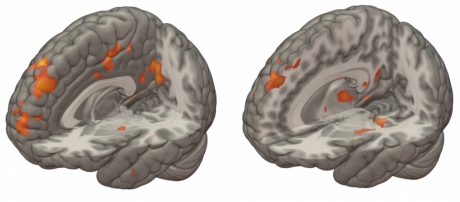InnovationTherapeutic Brain’s pleasure response blunted in alcohol dependence

New research, led by investigators at Imperial has demonstrated that the brain’s sense of pleasure and reward is blunted in alcohol-dependent individuals.
Central to the study was an investigation of the opioid system in the brain, which plays an important role in our sense of pleasure, pain, and reward. Growing evidence suggests that dysregulation of this system has a key role in addictive behaviour which is often referred to as a ‘reward deficient’ state. This means that individuals are unable to derive happiness from normally rewarding activities, which is compensated for in the form of substance abuse. Low levels of opioids have been implicated in vulnerability for developing alcohol dependence, and a number of treatments have been developed to target and regulate the brain’s reward system, but these are not always effective.
In the latest study, Professor Anne Lingford-Hughes’ team used positron emission tomography (PET) to try to better understand how the brain’s opioid system is changed by alcohol addiction. The study team recruited 13 abstinent alcohol-dependent individuals and 15 control individuals. PET scans were performed before and after delivery of a small dose of dexamphetamine, which was used to stimulate a response in the opioid system. The results demonstrated for the first time that the alcohol-dependent participants released significantly less opioids and endorphins than the control group. These findings correlate to a previous study which focussed on gambling addiction, and suggest that low opioid and endorphin release may be common in a number of different dependencies.
The next step in this research will be to investigate if dysregulation of the opioid system is a result of alcohol addiction, or is present prior to an individual developing dependence, and how it might relate to the risk of relapse.
You can read more about this work here.





